|
“Personal boundaries are the physical, emotional and mental limits we establish to protect ourselves from being manipulated, used, or violated by others. They allow us to separate who we are, and what we think and feel, from the thoughts and feelings of others.” - Z. Hereford Have you ever been disrespected or ignored by others in your life? Are you in a relationship where you are constantly feeling like you have to defend yourself or your actions? Do you have a hard time saying “no” to other people? Have some of your relationships left you feeling physically and emotionally drained? If you answered yes to any of these questions then you are not alone. Like yourself, I know from first-hand experiences, that relationships with other people can be challenging. Relationships are everywhere. We cannot escape them. They show up at work, at school, at the food market, at home and even in the world of social media. Speaking of social media, resources on the internet state that the average person spends about 70% of their awake time communicating with others (30% talking & 40% listening). While this may not be applicable to everyone, the point is that we spend a large part of our day communicating with others. Because we are surrounded by a variety of relationships, each of them requires that we behave differently. Some relationships are personal, some are simply social and others are strictly professional. Each of these relationships has specific needs. Each one has a unique purpose. Additionally, each of them requires a certain amount of our time, skills, commitment and energy. That said, after many years interacting with others, I have learned that achieving healthy relationships requires a variety of skills, such as active listening, problem-solving and maintaining personal boundaries, just to name a few. So, the focus of this blog post is to identify signs of unhealthy relationships and to share tips on creating and maintaining personal boundaries in your relationships. Below are a few signs of unhealthy boundaries in relationships:
If you find yourself relating to these signs, here are some tips for establishing appropriate boundaries: Tip #1 Identify your Needs: Everyone has needs. Needs are things that are necessary for living our lives. The issue for most folks is that they have trouble understanding what exactly are their needs.Once we are clear and have identified our needs, we increase the likelihood of getting our needs met. So, in order to create and maintain boundaries in your relationships, make a list of those needs that are important to you. Below are examples of needs:
Before you go onto the next step, take a moment to make a list of your needs and keep it nearby. When working with my coaching clients, I encourage them to write their needs in their journals.If you do not have one, I suggest you get one and keep it near you. Tip #2 Define your Boundaries: At this point it is important to be clear about what boundaries mean to you. I encourage you to create or find a definition for personal boundaries that you feel comfortable with. For example, check out the quote at the top of this blog post. For another example, see my definition below: “Personal boundaries are healthy limits that I place in all of my relationships, so that myself and others are clear about what is acceptable behaviors while we interact with each other. If there are any violations, I will take steps to protect my boundaries." Now that you have you definition that you are comfortable with, you are ready to take the next step. For a moment, refer to the list of needs you made for the previous tip. The next step is that we are going to convert your list of needs into what I refer to as "Boundary Statements". Below are examples of boundary statements: “I expect all of my personal relationships to be mutually respectful.” “Feeling safe in all relationships is vital to me.” “The existence of trust is vital to me.” “Listening to what I have to say is very important to me.” Tip #3 Share your boundaries: Now that you have identified your needs and created your boundary statements, you are ready to communicate with others what is important to you. Before you begin, you may wish to share your expectations with the other person.For example, I would ask the person to listen first and give feedback only when asked.Also, it is important to remind the other person that we keep what is shared in confidence. Finally, this may be a good time to ask the other person to share any experiences they have had setting boundaries in their own relationships.You may want to ask the person for feedback on how he or she handled others that were being difficult. Tip #4 Defend your boundaries: This is where you get to stand up for yourself when faced with another person that shows lack of respect for your boundaries.This is a tough step, especially for those of us who avoid personal conflicts.Conflicts are very uncomfortable.With practice, you will build confidence in defending your boundaries with others. It is important to let others know when they crossed the line or behaved inappropriately towards you.Do not be afraid to stand up for yourself. One suggestion I find quite useful, when trying to defend my boundaries with others, is to use “I-Statements”. These statements are concise, short and to the point. Below is an example: I feel upset When you make fun of me in front of others Because it is very embarrassing and hurtful I need you to respect me when we are with other people. Unfortunately, there may be times when you simply need to take time and space away from others who do not respect your boundaries. Remember, it is your responsibility to protect yourself from unacceptable behaviors. You need to take control of your life and not allow others to control you. Eventually, with plenty of practice, you will gain respect from others who value and appreciate you as the wonderful unique person that you are. Additionally, your sense of self-worth and confidence will increase as well. Tip #5 Reflect on your boundaries: This is an opportunity for you to reflect upon your experiences setting boundaries with others.Perhaps you can write down any thoughts, feelings or suggestions that occurred to you in the process. Also, it may be helpful for you to follow up with the person you talked with in step three and share any learning or concerns. Perfecting the art of setting boundaries requires time and practice.Over the years, I have noticed that is has become easier to share what is important to me in my relationships. Once you know how to establish healthy boundaries, you can expect to see some dramatic improvements in yourself and your relationships. You will find:
So, have you said yes to any of those questions at the start of this blog? Are you ready to stand up for yourself? Would you like others to respect your needs, thoughts and feelings? If you are like me, I value myself and expect others in my life to do the same. I no longer wish to be treated like a second-class person in my relationships. I want to put an end to being treated poorly by others, as I know deep down I deserve better. It is never too late to work on creating and maintaining healthy boundaries with others. If you need support in doing this, contact me for a free conversation on how we can do this together. Thank you for taking the time to read this post. I wish you the best in your quest to establish healthy relationships. If you want to see a video on this topic, go to this link: Please share any comments below on how helpful this post was for you and any steps you will be taking to create and maintain health boundaries. Also, if you found this helpful, please share with others who may benefit.
2 Comments
“It is not easy to find happiness in ourselves, and it is not possible to find it elsewhere.”
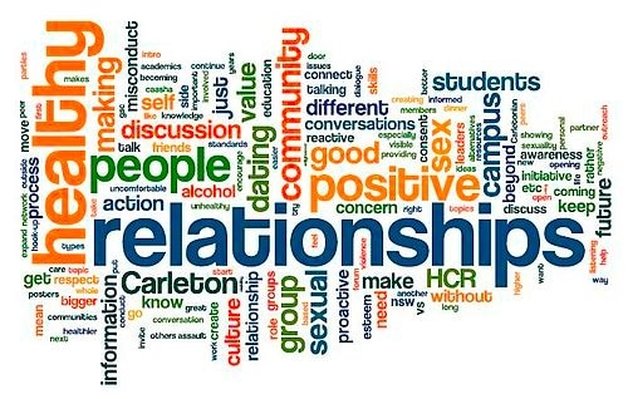 Relationships are everywhere. We cannot escape them. Some are easy to maintain while others, not so much. We have relationships with ourselves, family members, friends and those we work with. Not all relationships are the same. Each one has specific needs, expectations, demands, challenges and benefits. We depend upon our thoughts, beliefs, values, emotions and memories of our past experiences in order to participate and maintain the relationships in our lives. For some, we developed healthy relationship skills growing up and as adults are currently reaping the rewards. For others, who were not so lucky to have healthy relationship role models growing up, painful experiences, such as hardships and trauma, during the early years in life has led to relationship challenges in adulthood. There is no doubt in my mind, the trauma I experienced in childhood led to the relationship difficulties I experienced in my early adulthood. With low self-esteem, no confidence and the inability to identify my needs and express myself, I felt stuck and frustrated in most of my relationships. There were lots of conflicts and painful relationship breakups. At one point, I decided that I wanted to learn how to have and experience healthy, unconditionally loving relationships. Not knowing where to start, I bought lots of books, participated in self-improvement seminars and even sought out a therapist. After spending time getting to know myself, I discovered something pretty powerful. I discovered that in order to have healthy loving relations with others, I had to learn to love myself first. That said, the most important relationship in my life is the one I have with myself. Without further ado, below is a list of suggestions that I gained on my own personal journey as well as from working in jobs empowering others for over thirty-four years: 1. Get to Know You: Know yourself well. Discover the things that are important to you, such as your values, beliefs, likes, dislikes, and what makes you happy. Once you discover these things about yourself, surround yourself with like-minded people where you can support each other. There are countless resources, such as books, personal growth seminars, and life coaches, like myself, readily available to you when you are ready to say yes to getting to know the real you.I have listed at the bottom of this post some books I have found quite helpful in developing healthy relationship skills. When you stop living other people’s lives and start living yours, you are giving each other the chance to flourish into an amazing person. Getting to know yourself is a journey and takes time to materialize. It is a lifelong commitment in getting to know yourself.In knowing and understanding yourself well, you will make better choices, set and reach realistic goals, and ultimately live a fulfilling, productive, and happy life. There are all kinds of personality tests you can chose from to help you get to know yourself well. The one personality test I suggest to others is the one found at this link. When you have about 12 to 15 minutes, check out the link and take the test. Also, you will find a list of books in this post that will certainly help you get to know yourself well. 2. Create & Maintain Boundaries: Personal boundaries establish who you are to other people. These boundaries help others to know who you are and who you are not.If we are to grow and live as healthy, loving individuals, we need to take full ownership of our boundaries. When you own and respect your boundaries other people will not be confused and will most likely respect who you are as a person. Boundaries are vital to the success of healthy relationships. There are all kinds of boundaries: personal, emotional, verbal, physical, sexual, spiritual and much more. Having boundaries lets others know what are the acceptable behaviors in the relationship. When you state your boundaries, it shows the love and respect you have for yourself and for the relationship as a whole. Here are some tips on creating and maintaining healthy boundaries:
As you can see, setting and maintaining boundaries is vital to your survival. It sends a message to the world that you love and respect yourself and will take actions to take good care of yourself. If you would like to learn to how to create and maintain personal boundaries, feel free to reach out to me for free consult in how coaching can help you meet your goals.You can reach me via my website as shown in this document or can call me directly on my cell phone at (978)372-2284. Or contact me via this website. 3. Have Ground Rules: One of the biggest reasons for failed relationships, whether romantic or social, is the lack of an agreement in how to behave respectfully with each other. If you feel your relationships lack rules, sit down with the other person and agree to brainstorm on a list. Remember, it’s important to create a draft and work on perfecting it over time. These types of projects take time to create.Examples of rules might look like the following list:
4. Do not tolerate abuse of any kind: There are so many definition of abuse. Examples of types of abuse are verbal, emotional, sexual, physical, and spiritual. The definition of abuse I often use is “when someone maliciously mistreats another person”. Any form of abuse prevents relationships from being healthy. If you feel you are in a relationship where there is abuse, it is important to recognize this and seek out professional help. Abuse in relationships is common and often referred to as Domestic Abuse.If you suspect that you are in an abusive relationship and need to talk to someone confidentially, you can call the National Domestic Abuse Hotline at 1−800−799−7233. The calls are private and they will always ask you if it is safe to talk.Make sure you call when it is safe to call this hotline. 5. How to approach Introverts and Extrovert: Being an extrovert, I consider myself an outgoing, outspoken, and gregarious person. I happen to be in a relationship with a partner who is an introvert, which is normally a person who is relatively private or shy in nature. In the past 17 years of living with an introvert, I have learned some valuable lessons I would like to share. First, it is important to determine who is the introvert and who is the extrovert. Secondly, ask your partner what it is like being an introvert/extrovert. While asking questions, ask what makes your partner uncomfortable and comfortable when interacting with people. Lastly, avoid behaviors that are dismissive in nature.For example, avoid saying the following remarks to an introvert “I wish you were more outgoing” or “How come you are not a people person?”. These types of comments imply that there is something wrong with being an introvert. There are comments to avoid when in relations with an extrovert. For example, avoid making comments such as “I wish you would stop socializing so much” or even “Why do you always have to talk when we go out to social events?” Comments like these can make someone who is either an introvert or extrovert feel like there is something wrong with them. Take the time to learn about each other and understand the characteristics of introverts and extroverts. Your relationships, like mine will be very receptive to each other’s needs and the rewards are amazing. 6. Find and read useful books on relationships: There are so many books on learning to love yourself and having healthy relationships with others. Below is only a small sample of the many out there:
If there is a book you would like to suggest, please reply to this post with your suggestions so myself and other readers will benefit. Thank you. 7. Own your stuff: You are 100% responsible for your well-being. No one is responsible for making you happy. Happiness starts with you. Having others in our lives may bring happiness but true happiness starts deep within you.Like many, I have gone into relationships hoping I would find happiness or that the other person knows what I want and need.I was often disappointed and let myself down. In each relationship, both sides come with a great deal of life experiences. Those experiences shape how we each see ourselves and the relationships we are in. Our experiences can either help us or hurt us. This is why I feel it is important for you to know and apply the tips in this post to your relationships. Having had many painful relationship experiences, my goal is to empower you with knowledge and to seek out only those relationships that serve you. Since I have been on the path to self-awareness I have gained happiness, a sense of liberation, and a strong sense of fulfillment. The first three words in the book “The Road Less Traveled” by Scott Peck plainly states “Life is difficult”. I was troubled for many years after I read those words. I knew what he meant but deep down inside, I wish he said something like “Life is difficult but it doesn’t have to be”. That is my motto in life now. If you are in a relationship where you feel there are issues and you are unclear or feeling stuck on what to do, contact me for a free, private coaching session.In that session, I can show you how coaching can help you get both clear and unstuck so you can take the steps to experience healthy loving relationships. May you take the steps to make sure your relationships serve your well being. “To believe your own thought, to believe that what is true for you in your private heart is true for all men -- that is genius,” – Emerson When you trust yourself and what you believe, there is very little room for self-doubt. Also, others’ opinions or thoughts about you and the choices you made usually does not trouble you. Believing and trusting yourself is rewarding and fulfilling. Growing up, most of us were told what to do and when to do it. As children, we were exposed to many adults, like parents and teachers that were busy showing us how to behave.Unfortunately, we were not taught or encouraged to be trustworthy. Learning to trust myself did not come easy for me. Like most of you, I have lacked trust in myself most of my life.Whether it was in my capabilities either at work, home, or school, I did not have much faith in trusting myself. Self-Doubt was rampant.I was stuck in this endless depressive cycle until I encountered my training as a life coach. Being coached during the training brought me in touch with the tools to gain an awareness into how my lacking self-trust was hurting me in all areas of my life. I have learned so much from mentors, trainers, spiritual guides and coaches. So, I want to share these insights, tools, experiences, and knowledge with you, as you continue to find ways to trust yourself. Here are some suggestions to explore ways to build up your trust in yourself:
Is there anything on this list you are willing to try? What steps will you take to make it happen?How will you hold yourself accountable? If you are interested in working on this issue through coaching, give me a call, at no cost to you, to see where I can help you trust yourself and others well.Give me a call: (978)372-2284 Triggers are everywhere. Some are healthy others are not. For me the smell of french fries makes me want to pull over into the drive through of a local restaurant and order some. Another example of a trigger is when someone smiles at me I immediately feel good with a smile in return.
For those who have experienced trauma in their childhood there are plenty of emotional triggers. Some are known while many are not. If you are learning to heal from childhood trauma, you know that the healing process is a life long commitment. One thing that comes up in coaching a great deal is how to manage emotional triggers. As one who is doing my own healing work due to childhood trauma, I know the challenges of dealing with emotional triggers. Like many of you, I spent a great deal of my life reacting to triggers in unproductive ways. Dealing with triggers reached a point where it was getting in the way of holding down a job and even enjoying the benefits of intimate relationships. I was exhausted and needed to find better ways of handling my emotions when triggered. As a Life Coach, who gets coached by other Coaches, I have discovered there were so many useful, powerful and effective “how to” tools that can help Adult Trauma Survivors live an amazing life. I am going to share some tips that I have given to my clients on how to handle being emotionally triggered without reacting negatively: 1. Take a deep breath. Take a moment to acknowledge what you are feeling and avoid speaking or writing until you are calmer. Taking multiple deep breaths has helped me prevent some unpleasant consequences. Usually there is no need to react right away unless your safety is at risk. 2. Tell yourself you have been triggered. It is important to recognize that your triggers may bring up old emotions, such as betrayal or abandonment. Triggers are emotional memories stored in your body that can be set off by others’ actions. 3. Remind self that you are safe and in an adult body. Remind self you are no longer that helpless child and that as an adult, you have the means to seek out support. I usually say to myself “This situation has triggered me for some reason but I am safe.” 4. Draw a line in the sand. Establish the need for verbal or physical boundaries. No one deserves to be mistreated. Boundaries are vital to the process of healing from past trauma. 5. Don’t take it personally. I have discovered in my many years of healing work that most people project their own issues onto others. This phenomenon of projecting onto others is called “Transference”, which usually means when someone redirects one’s own emotions, beliefs or attitudes onto someone else. 6. When ready respond from Heart. When we get upset, we tend to go into our heads to plan our next steps or actions that may not serve our well-being. We refer to a tool that helps one to speak either from the head, the heart or your emotional gut in ways that serve you for the better. 7. Use I-Statements. This tool is very popular with those I work with. Many have reported that this tool, with practice, is effective, powerful and to the point. Below is an example: I Feel [upset] When You [insult me in front of others] Because [I feel hurt & betrayed] I need You [to respect me when in public] 8. Learn to identify when you get triggered. Part of our healing work is to make a list of the triggers that affect you. A trigger could be anything, such a smirk, a tone of voice, or use of threatening body language or even a certain touch. Once you know what your triggers are, you can take preventative measures to avoid painful triggers and react with ease in a healthy way. 9. Be gentle with yourself. I remind those that I serve “that healing work takes time and we need to be gentle and patient with the process”. I hope that you have found the above tips useful in your healing work. True recovery takes time to do it right so don’t beat yourself up if you did not handle a trigger well. It takes a great deal of practice to master managing triggers. Do you have triggers in your life? Can you recognize when they happen? Do you have a process to handle them? Can the above list help you improve upon your process managing triggers? Please feel free to comment and share what has helped you to manage triggers in your life. If you want to learn more about managing your triggers you can contact me for a no cost session either over the phone or in person. One of the most popular issues people want to address in coaching with me is to learn how to trust others again. We discover in our sessions together that the lack of trust stems either from issues growing up or perhaps experiences with painful relationships. Once we know where the mistrust started, we then take a look at the pros and cons of trusting self and/or others. Doing this allows one to see where mistrust can be hurtful and how learning to trust self and others can be rewarding in social, intimate and professional relationships.
In my case, I am fully aware of the reasons for my lacking trust in others. It started during my childhood and continued into adulthood. In looking back at past relationships either personal or professional, I realized how emotionally painful and exhausting it was not to trust others. Like those who seek out my coaching services, I wanted relief from the consequences of not trusting others. So here are some things I ‘ve learned along the way in developing the ability to trust myself and eventually others: 1. Trust yourself first: This one was a tough one to do.I had to look closely in my life where I was not honoring those things I wanted to do.I realized that I was not being trustworthy to myself by not fulfilling those promises I wanted to accomplish. Eventually I took very small steps by making easy promises that I could achieve.This led to making bigger goals and feeling empowered about doing those things that were important to me. Try it yourself.Start with small goals and work towards the bigger ones. Once you learn how to successfully create the habit to trust yourself you will find it much easier to know who you can and cannot trust. 2. Practice speaking your mind: Communicating your needs and feelings is important.In looking back at most of my personal and professional relationships, I discovered that communicating my needs was not easy to do.In fact, a majority of the relationship conflicts stemmed from inability to communicate effectively. Eventually, after practicing very simple communication skills and tools, I was able to speak with confidence in my relationships at home and work. It is a very liberating feeling to speak up for myself in a way that is not upsetting. 3. Draw lines in the sand: Letting others know that you will not tolerate unhealthy behaviors is creating boundaries.Setting emotional and physical boundaries was about taking care of myself.At first I was afraid to set boundaries but learned that in doing so, I was taking care of myself by letting others know I care about my well being. 4. Get a mental make over: In other words, change the way you think about yourself and your relationships.If you believe that you will never trust others again then you will likely either be alone or in relationships that are unhealthy.I discovered that my negative thinking habits were contributing to a great deal of my relationship conflicts both at home and work. Having self doubt and little confidence about my ability to be in relationships was no longer working for me.I bought some helpful books and learned practical tools in my sessions with my coach.One of my favorite quotes is “The root of all suffering is in the mind”. Accept where and how your thinking may be harmful and seek out new habits of thinking positively. If you want to know how a life coach can help, let me know.My coach was amazingly helpful. 5. Be accountable to yourself: Growing up with no self-confidence, I habitually sought out others’ opinions on what I should do with my life’s circumstances. I did not believe in my own ability to make healthy choices in my life. When things went wrong in my life, I blamed others and took no responsibility for my actions. This vicious cycle of depending upon others did not produce the fulfilling life I wanted. I had to learn how to trust and be accountable for my own life. So with simple tools, I learned that who I wanted to be in life had to come from my heart not from other people. Today I am very thankful I have learned to be accountable for the fulfilling peaceful life I desired. 6. Be gentle with yourself: Life can be difficult. It is important during those trying times to be kind and loving towards yourself. Remind yourself that you are on a journey and accept that there may be bumps along the way. Learning to be kind and gentle to yourself enables you to do the same for others in your life. 7. Practice, Practice & Practice: As with any new ideas, beliefs or tools, we need to apply them in our lives repeatedly in order to develop healthy trusting behaviors. In my sessions with my life coach, I was reminded to commit to applying the tools I have learned so I can develop the ability to trust myself. When I am able to trust myself my ability to trust others will follow. The ability to trust oneself and others is vital to living the life you desire. As I have learned with my own experiences, it was nearly impossible for me to live a happy and fulfilling life without trust in myself and others. I will not kid you, learning to trust again can be scary but continuing to live life without trust is much more costly and painful. So I ask you if you were dealing with trust issues, if you knew that there were steps towards learning to trust, would you take them? What are you willing to do to learn how to trust yourself? If you find this post helpful, share it with others who may need to deal with trust issues. “To be nobody but yourself in a world which is doing its best, night and day, to make you everybody else means to fight the hardest battle which any human being can fight; and never stop fighting.” - E.E. Cummings I know pain well. I know what addiction does to a family. I know what suicide can do to those left behind and I know what it feels like to consider suicide. I know depression well and what having a disability can do to one’s self esteem.
I know what racial divides can do to a community. I know what it feels like to be rejected and banished by a parent for loving someone of the same gender. I know the deep pain involved in leaving loved ones behind so I could have a better life. I know what it feels like to lose a job because someone does not like me. I know how hard it is to find the words to explain how I feel as well as how hard it is to accept and ask for help. I know how it feels to be lonely in the middle of a crowd. I know what it feels like to have 6th grade reading and math skills entering into college. Here is another thing I know: I know that as a person who has experienced hardships of all types, I have chosen not to let any of these circumstances define who I am as a person. What made my life much better today was the decision I made many years ago. One day, while struggling with a painful situation, I just decided to say, “Yes!” to life. When the opportunity to heal emotionally came around, I said, “Yes!” When the invitation to improve upon my educational needs arrived, I said “Yes!” When the opportunities for learning to be vulnerable in healthy relationships came, I said, “Yes!” I said “Yes!” to learning how to communicate my needs with others in my life. During a class on “Finding & Living One’s Purpose in Life”, I discovered and said, “Yes!” to my calling in this life. What I said “Yes!” to was that I would use my life experiences in helping those who want to move beyond the pains in their lives. I wanted to help others who wanted to grow to be the person they know themselves to be. Specifically, I wanted to work with those who refuse to let what happened to them define who they are. I wanted to work with those who were no longer afraid to say “Yes!” to life. So, as you ponder where you are in life, are you willing to say “Yes!” to a better life? Are you willing to improve areas in your life such as relationships with self and others or maybe with your job? When and only when you are ready to say “Yes!” contact me. That’s right, “There is nothing wrong with you.”
This is what I say at the first session to every person who comes to me for coaching. I wish I could videotape the wide range of reactions I see after making that statement. I see disbelief, confusion, doubt, sometimes even agreement. I then follow up with another statement, “The issue is with your thinking. It is the way we think about ourselves that is the problem.” At this point many react with a huge sigh of relief. This is the first step in understanding how to stop blaming ourselves and start learning about ourselves. I know that sigh of relief well. I experienced it many years ago during a coaching session. Desperate for relief, I recall asking, “How do I make the painful negative thinking stop?” It was then I was told it is the way I was thinking that needed to change. It was all uphill from there. I learned and worked with some easy tool to take control of my thoughts. I felt good about myself. I realized I am not the sum total of my thinking. I do not have to be at the mercy of my internal negative voice. My relationships both at work and at home improved. My life got better. When I have times of self-doubt or negative thinking, I have the tools and confidence to confront it before it gets out of hand. Are you imprisoned by your negative thoughts? Are your thoughts getting in the way of having healthy relationships at home and work? Are you willing to take control of your thoughts? When you’re ready, contact me. My journey in life started in an abusive and neglectful family setting. There was verbal trauma—being told ‘you are not good enough’, or ‘you are adopted’, or even ‘you are unworthy of love’. At my core I felt abandoned, rejected, unloved, unworthy, defective, and stupid. I felt I had nothing to contribute to humanity. Life looked pretty bleak.
Painful physical trauma made it harder for me to make sense of my world. As a young boy my primary focus was to figure out how to survive and steer clear of the offending family members. I was great at avoiding pain at all cost. I felt a huge sense of relief when I turned 18 and prepared to attend college. I felt that freedom had arrived and said to myself ‘Thank God the suffering will stop now’. And the childhood abuse did stop. What I didn’t realize was the impact of the suffering would follow me well into adulthood. Over the next 20-30 years, I was in a series of unhealthy relationships. I could not deal with the many stressful situations I was involved in. I was plagued with anxiety, fear and constant worrying about everything around me. It was not only painful for me but for also for all of those people in my life. I knew I needed help but was unclear as to what kind of help I needed and what issues I needed help with. I sought out counselors, psychologists, psychiatrists, spiritual healers, medication—you name it, I tried it. I was desperate for refuge from the constant mental anguish that plagued me. While each of these resources gave me relief and understanding, something was still missing. I was well trained to understand my suffering but I was not trained in learning how to move beyond my suffering. I had a clinical diagnosis of my inability to cope but I didn’t have practical skills and tools to help me move past the suffering. I was helpless trying to manage my excessive worrying or handling difficult situations in my relationships. While dealing with my emotional issues, I was also trying to find a different career that would have less stress and allow me to help others. I found Life Coaching. I started with a Life Coach and realized I wanted to be one too. I found a number of tools that helped me identify and enjoy healthy relationships. I was able to communicate my needs well and handle difficult situations with ease. I came to the realization that there are so many techniques and tools to help me rise above and manage the impact of childhood trauma. I vowed to try every one of the tools personally before introducing them to my clients. Some worked very well, others were not appropriate for me. But I know personally about various tools available for people to use. As a result I find myself saying the same things personally that now many of my clients have shared with me, ‘I have learned and applied so many skills in my life as a result of Coaching.’ While therapy serves a vital purpose for people, especially those recovering from childhood trauma, Coaching puts healthy, practical actions into the healing process. In your healing from childhood trauma, or any trauma really, what do you find missing as you learn to live your life? How does expressing yourself with ease sound to you? Would you like to know how to handle stress or conflict? Would you like to learn how to accept and love yourself? Are you tired of being in unhealthy relationships? If you are want to move forward in your healing process with practical tools, contact me for a no cost session to experience how coaching can help you live the life you want.  Worry can be deadly. This is not hyperbole; it's the truth. Several years ago, I landed in the hospital with 7 bleeding ulcers. I required 2 pints of blood and several days of bed rest. Deep down, I knew this incident was related to a life-long habit of worrying. While in the hospital, a nurse spoke quite frankly with me and said, “In the old days, you simply would have died”. I was taken back by her blunt honesty, but in the back of my mind, I knew she was right. This crisis had been coming for years. At age 29, I had suffered a perforated ulcer that baffled my doctors. They never met a young man who did not need surgery for the perforated ulcer, as it healed naturally on its own. With the second trip to the hospital in mind, my body and spirit were worn out by what I called my "plague of the mind." Excessive worry. I knew it was a serious problem. I saw my doctor and told him I wanted the worrying to stop. He offered a prescription that he felt might help me, but I even managed to worry that the medication would not work. Worrying was only part of the issue. I was unhappy in a job I'd held for more than 10 years. I was unable to sleep well. In fact, there was one point where I was trying to function on 2 hours of sleep a night, or less. The worrying was painfully eating away at my peace of mind. It affected my job performance to the point that I was receiving verbal warnings from my supervisor after a decade's worth of a clean performance record. Eventually, we mutually agreed that I needed to leave the company. Finally, I reached the point where I wanted to control my worrying and not let it control me. I was done. I wanted to put an end to excessive worrying. I saw how it impacted most of my relationships in my adulthood. I realized how worrying kept me from trying new things or taking risks. I missed so many opportunities in my life. I saw how my worrying kept me from living a normal life of peace and happiness. I was a slave to my thoughts. I prevented myself from succeeding and living out my fullest potential. I was tired of hearing people, who meant well, tell me things like "Just stop worrying,” “Try to focus on something positive,” “Try meditation,” or “Just get over it!” I stopped listening to them and, in turn, they were tired of listening to my obsessive, worrisome thoughts. No one could advise me on “how” to stop worrying. I made it my personal mission to find the methods on “How” to keep the worrying from controlling me. In the last four years as a Life Coach, after thousands of hours of training, researching and working with clients, I have discovered so many methods to control my worrying. I knew I was on the right path and wanted to share it will my clients. They responded with amazing results as well. Today, I am liberated from excessive worrying and have learned to live with productive worrying habits. I will not kid you, it took time and practice to get where I am today. So, I ask you as a worrier, how far will you let the worrying control your life? Are you ready to take the steps to control your worrying and live a life of peace of mind and happiness? Are your relationships at home, work and even school impacted by your worrying? When you are ready to say enough is enough and take charge of your worrying, and want to learn “How” to control your worrying, Contact me. Are you ready, curious, and committed to finding your purpose in life? Great! When will you start? -Tom Ellis 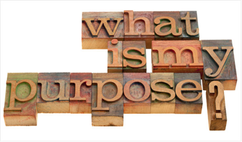 Is there anyone who hasn't asked, at some time or another, “Where am I going with my life?” What is your purpose? Are you doing all that you can with the gifts you've been given? Would your life be peaceful and full of happiness if you knew your purpose?” I should tell you that I am no expert on the answers to your questions. However, I can offer you the space and a process to explore these and other questions in depth. You see, no one is an expert on your purpose except you! If someone claims to be a life-purpose expert and proceeds to tell you why you are here, run the other way and run really fast. Here is the process that I use for helping others to find their purpose in life. It developed after thousands of hours of experiences and feedback from others, like you, who were on their journey to identifying and living their purpose in life: 1. Exploring with the use of powerful questions. In this step is where we get to explore, use our curiosity, and ask lots of questions. Below is just a sample: “What does finding and living your purpose look and feel like?” “Why is it important to you having a purpose?” “What would your life look like if you did not have a purpose?” “What do you think is getting in the way of finding your purpose?” “What role, if any would religion and or spirituality play a role in your search?” “Are you committed to the process of searching for your purpose in your life?” 2. Assessing your needs and values. Once we identify your needs and values, we have an understanding what you need and what is important in your life. Also, we have a solid compass that would guide the rest of the process in working together. This is a critical step. 3. Using positive thoughts and habits. It is very important to identify the thinking behind your actions. Every action was born from a thought. You need to understand how your thoughts and actions can either hold you back or push you forward on your path to finding your life purpose. As an expert in the communications area, I will introduce you to simple, yet powerfully easy-to-use tools that will help you to clarify, organize and focus your thoughts in a manner that will serve you quite well going forward in the search process. 4. Identifying your purpose in life. This is a powerful step. At this point, your level of self-awareness and acceptance has been solidified. We will use tools and materials that will narrow your focus and identify your purpose in life. At the conclusion of this step, you would have created your “Life Purpose Declaration”, which identifies why you are here on earth and what you will be doing with your life going forward. Congratulations are in order at this step. 5. Sustaining and maintaining your purpose in life. This step explores all that you need to do to gather the support and resources to sustain and maintain your purpose, as you go forward on your path in life. This is where you announce to your love ones how you are choosing to live your life going forward, and letting them know their support is welcomed. 6. Enjoying your new found purpose and freedom to express yourself to the world. This is where you get to reap the rewards of your efforts invested in our time together. Nice work!! Now get out there and do what you were here to do. Now that you have an idea of what you can do to explore your purpose in life, what do you plan to do next? Are you ready to make some changes? Do you feel that knowing your purpose in life is important? Do you need someone to help you to figure out what is your purpose? You have some things to think about. When you are ready, I'm here to help. Contact me. Be well. Be curious. Be yourself. Tom |
Tom Ellis, CPC
Tom is a Path Finder who is solution & action focused as well as a Life Purpose Specialist. Artist & Gentleman Farmer.
|
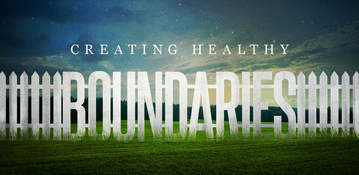
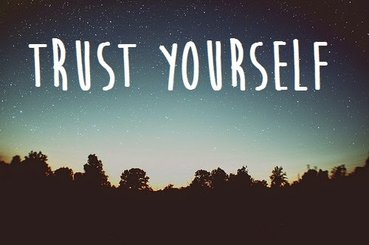

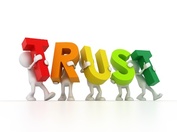
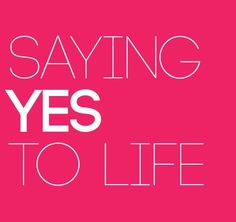
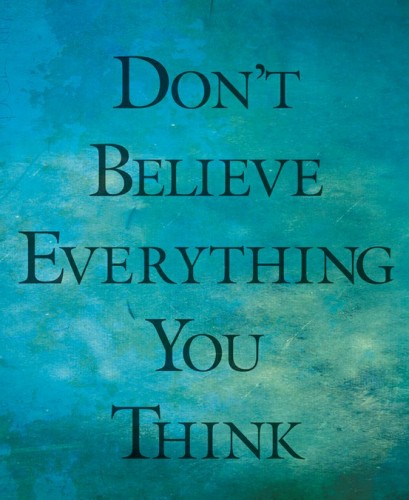
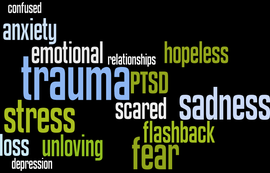
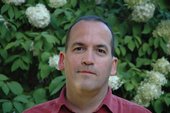

 RSS Feed
RSS Feed